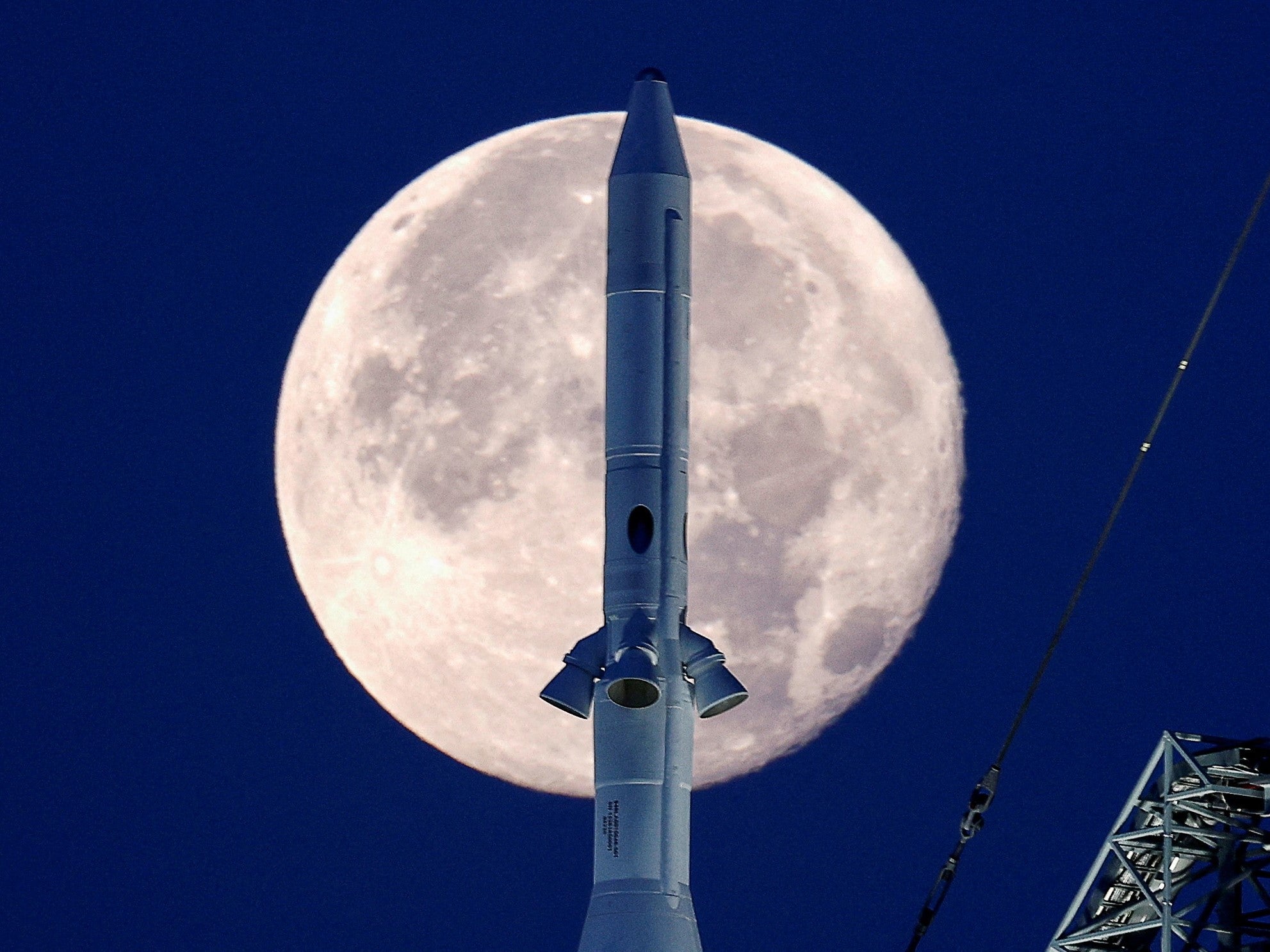Artemis launch delays mean Moon probes’ batteries are dying
‘The longer we wait, the higher the risk,’ says one satellite operator

The delay of the Artemis 1 launch is jeopardising another mission that is piggybacking on Nasa’s Space Launch System (SLS) rocket.
A secondary payload of 10 shoebox-sized satellites, called CubeSats, have been stuck within the SLS for more than a year due to numerous delays. The operators are now worrying that the batteries onboard the CubeSats will be so drained that they will have insufficient power to complete their missions.
The batteries are essential for unfolding solar panels, which are then used as a long-term power source for the tiny satellites.
The CubeSats include deep space radiation monitors and probes for the Moon and asteroids.
“The longer we wait, the higher the risk [of the batteries dying],” Ben Malphrus, who helps operate the Lunar IceCube CubeSat, told the journal Science.
Another operator of a CubeSat called LunaH Map estimates that its battery reserve is currently at around 50 per cent, warning that if it falls below 40 per cent then it will not be able to perform the initial operation sequence required to unfurl the solar panels.
Craig Hardgrove from Arizona State University, who leads the operations team of LunaH Map, said he has asked Nasa for access to the satellite in order to recharge it but was denied.
“You can’t agree to take stowaways and then kill them,” he said, while also acknowledging that it is a risk that always comes with launching CubeSats. “It wouldn’t be a CubeSat mission if you weren’t anxious,” he said.
The latest delay for the Artemis 1 mission came on Monday, with just 40 minutes left on the countdown clock at the Kennedy Space Center in Cape Canaveral, Florida.
Nasa has set a new date for Saturday, 3 September, at 14.17pm local time, or 7.17pm in the UK, with the launch window open for two hours.
Join our commenting forum
Join thought-provoking conversations, follow other Independent readers and see their replies
Comments
Bookmark popover
Removed from bookmarks